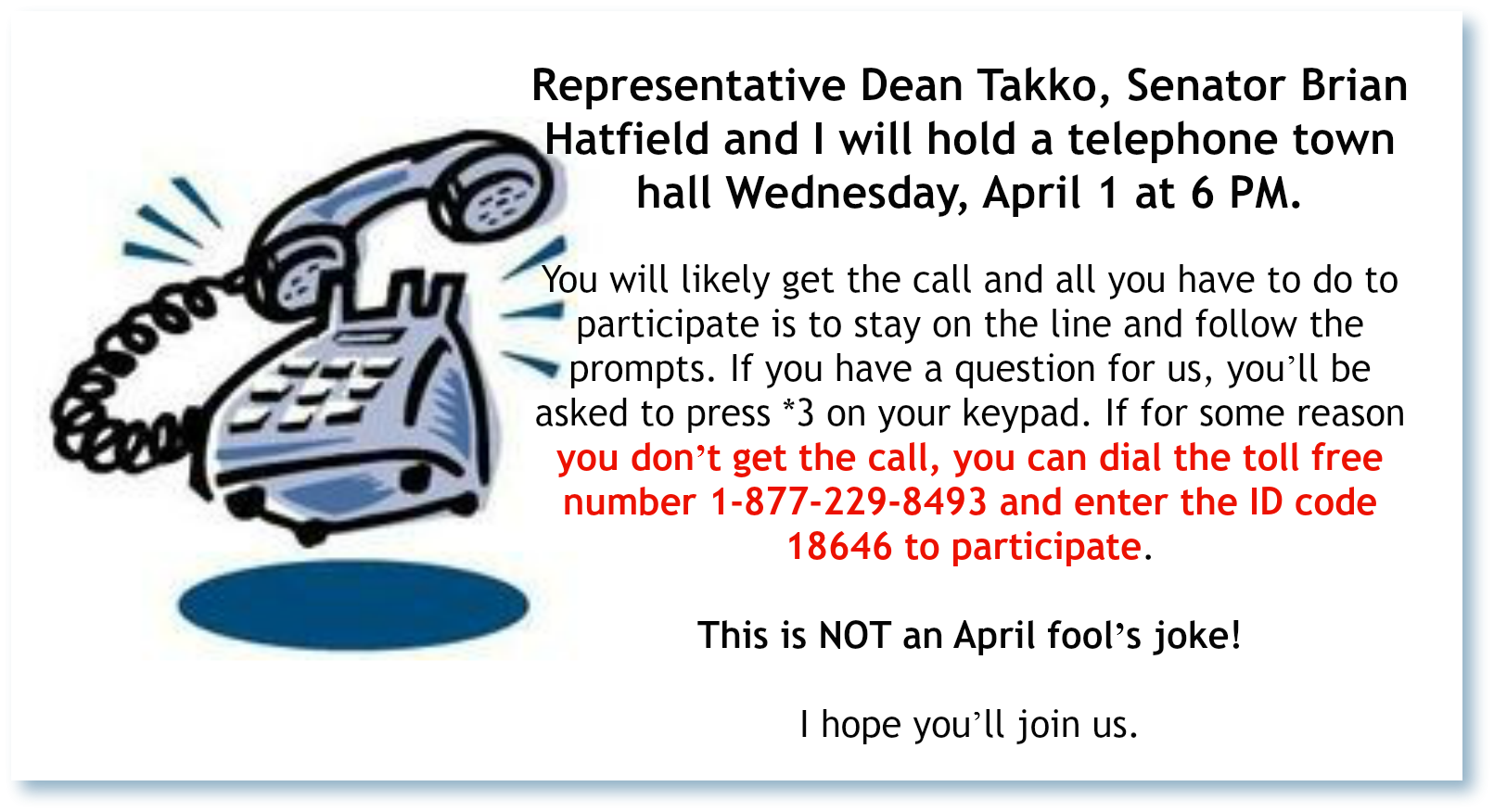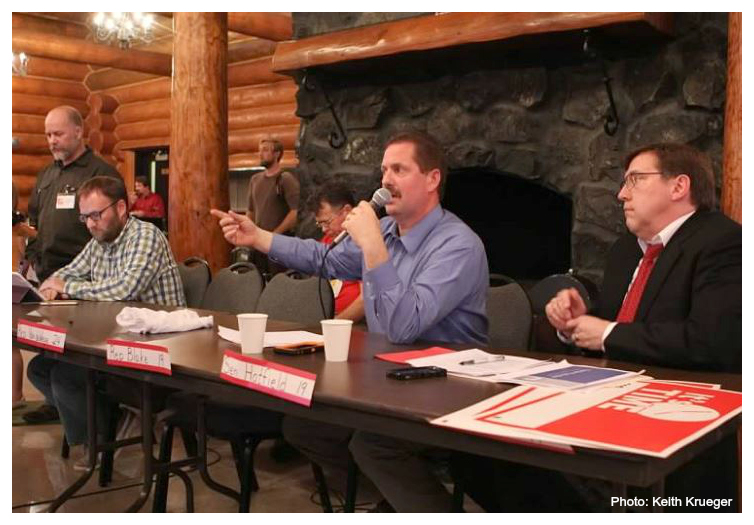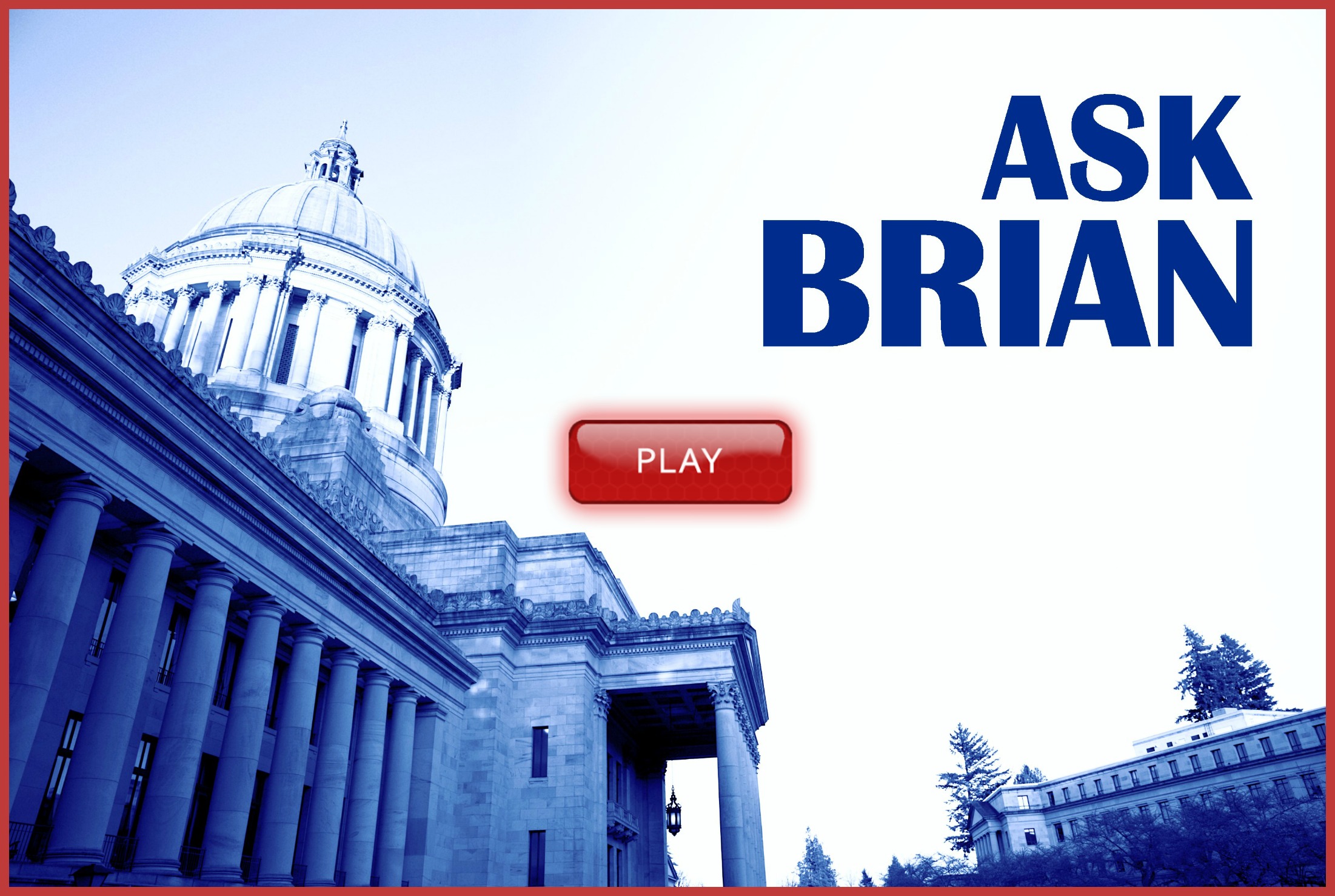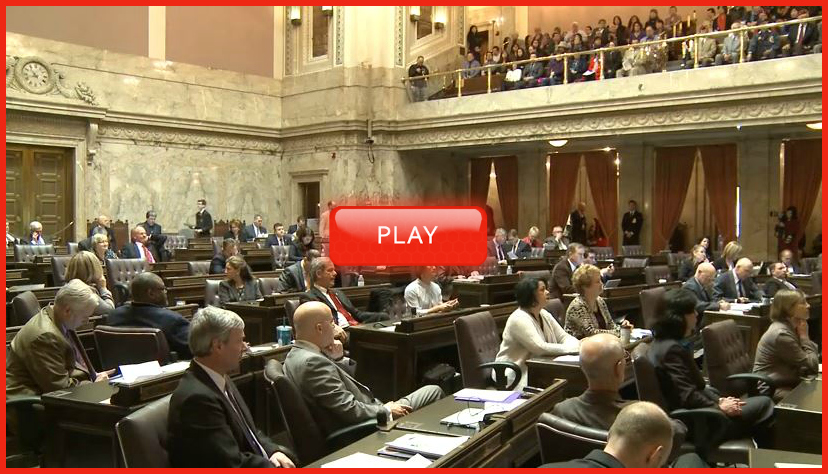Pick-up the phone on Wednesday, April 1 @ 6 PM 
WEA Forum
Were you at the Washington Education Association forum last Friday? It was great to be there and hear from teachers and students firsthand on the issues that concern them.

We’re rolling out the House budget this Friday, so I expect many of the details that address the questions Sen. Brian Hatfield and I got will be laid out there. If you were at the forum, I thank you for your interest and participation, but if you missed it, here are two press stories on the event:
KXRO: Education town hall fills Rotary Log Pavilion
The Daily World: Teachers show solidarity, quiz lawmakers
ASK BRIAN!
In this episode of Ask Brian I explain why I don’t support legislation that ties students’ tests scores to teacher evaluations, and why I strongly support the Early Learning Act.
Razor clams and the Department of Fish and Wildlife
The Department of Fish and Wildlife just announced some recreational razor clam digs in March with tentatively planned digs in April and May. The process for setting razor clam seasons involves not only Fish and Wildlife ensuring a sustainable razor clam population, but also uses information from the Department of Health about marine toxin levels to ensure that the clams are safe to eat.
Razor cla ms may seem like small fry compared to funding education or reforming our tax system, but these programs are an important part of what makes Washington great. State investments in clean water, state parks, and our shared natural resources not only support our Northwest lifestyle but also create jobs and contribute to our economy.
ms may seem like small fry compared to funding education or reforming our tax system, but these programs are an important part of what makes Washington great. State investments in clean water, state parks, and our shared natural resources not only support our Northwest lifestyle but also create jobs and contribute to our economy.
If you end up getting some of those tasty razor clams, the Department of Fish and Wildlife even provides some information on how to clean and prepare them and even some tasty recipes.
Free online tax preparation
The IRS has partnered with private tax software companies to provide free online tax preparation and electronic filing for people with incomes of $60,000 or less. There are also some free services available for people over that income threshold. www.IRS.gov/freefile
The IRS website also has a page with information about Earned Income Tax Credit (EITC) eligibility: https://www.irs.gov/Individuals/EITC-Home-Page-Its-easier-than-ever-to-find-out-if-you-qualify-for-EITC
Fixing our broken mental health system
Our mental health system is broken and we need to improve every aspect of it – from primary care, to outpatient treatment, to crisis management. So earlier this month, we passed these bills out of the House to address some of the most pressing issues:
HB 1448 – Sheena and Chris Henderson’s Law: Named after Sheena Henderson, who was murdered by her husband Chris as he suffered from severe mental health issues, will give law enforcement officers another tool to deal with individuals suffering from a mental health incident.
HB 1450 – Concerning Involuntary Outpatient Treatment to provide more options for outpatient treatment for people with mental health issues, which will result in fewer mental health and forensic commitments. It is less restrictive, less expensive, and more humane than involuntary treatment.
HB 1713 – Helping to improve mental health and chemical dependency programs taking us a step forward for integrating our systems to get people the care they need.
SB 5889 – Concerning timeliness of competency evaluations (companion to HB 2060) to ensure that individuals with mental health issues will receive timely assessment and treatment in our criminal justice system.
Tech industry is key economic driver in Washington
The Washington Technology Industry Association recently released a study on the regional economic and fiscal impact of the information and communication technology (ICT) industry. Some of the study’s findings include:
- In 2013, almost 240,000 people worked in direct or indirect tech jobs across our state in companies that cover the entire spectrum, from very small businesses to giants like Microsoft and Amazon. The combined earnings of all those tech workers was $22 billion.
- Each of those 240,000 high paying jobs spurs further economic benefit, which creates 2.7 more jobs in the wider state economy. The combined economic impact of those two factors results in at least 7 additional jobs associated with every essential ICT worker.
There are about 20,000 open computing jobs across all industries, but only 1,200 students graduated with computer science degrees in 2014. There’s good news, though, a couple of weeks ago, we passed House Bill 1813, which establishes a grant program with a private match requirement to both train educators in, and teach students about, computer science, as well as to fund equipment.
Watch my video update!
As always, I appreciate your taking the time to read my newsletters and I welcome your feedback.
Sincerely,
![]()


